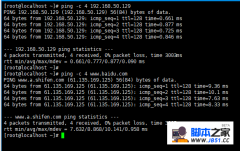HDF驱动框架寻路 Linux总线机制imx6ull驱动sr501红外传感器
发布时间:2021-12-23 09:31 所属栏目:118 来源:互联网
导读:前言 上一篇文章中最后在操作led灯的硬件时候,我们是直接读的原理图,去操作的寄存器,这种情况是我们绝大多数情况下会这样子进行操作,而本章我们的核心重点是使用总线机制,也就是通过修改设备树的方法来操作硬件。 HDF驱动框架探路(六):linux总线机制imx
|
前言 上一篇文章中最后在操作led灯的硬件时候,我们是直接读的原理图,去操作的寄存器,这种情况是我们绝大多数情况下会这样子进行操作,而本章我们的核心重点是使用总线机制,也就是通过修改设备树的方法来操作硬件。 HDF驱动框架探路(六):linux总线机制imx6ull驱动sr501红外传感器-鸿蒙HarmonyOS技术社区 HDF驱动框架探路(六):linux总线机制imx6ull驱动sr501红外传感器-鸿蒙HarmonyOS技术社区 涉及到的概念介绍 1.总线的概念 总线是处理器与一个或者多个设备之间的通道。在设备模型中,所有的设备都通过总线相连。甚至是那些内部的虚拟“平台”总线。总线可以相互插入,比如一个USB控制器通常是一个PCI设备。设备模型展示了总线和它们所控制的设备之间的连接。 1.驱动程序 1.1 总线的使用逻辑首先调用 为了正确地注册到内核,所有的platform驱动程序都必须创建的主要结构体是struct platform_driver结构体。该结构体由许多回调函数和变量组成,向platform描述了platform驱动程序。所以我们需要写一个struct platform_driver结构体。然后在其中有两个比较重要的回调函数:probe和remove int (*probe)(…)指向platform驱动程序中的探测函数的指针。当platform核心有一个它认为驱动程序需要控制的struct platform_device时,就会调用该函数。所以我们会在这个函数中写驱动程序的逻辑。 int (*remove)(…)指向一个移除函数的指针,当struct platform_device被从系统中移除,或者platform驱动程序正在从内核中卸载时,platform核心调用该函数。 为了把struct platform_driver注册到platform核心中,需要调用以struct platform_driver为参数的platform_driver_register函数。通常在platform驱动程序的模块化代码中完成该工程。 当platform驱动程序将要被卸载的时候,需要把struct platform_driver从内核注销。这是通过调用platform_driver_unregister完成的。 1.2 完整实现代码 #include <linux/module.h> #include <linux/poll.h> #include <linux/fs.h> #include <linux/errno.h> #include <linux/miscdevice.h> #include <linux/kernel.h> #include <linux/major.h> #include <linux/mutex.h> #include <linux/proc_fs.h> #include <linux/seq_file.h> #include <linux/stat.h> #include <linux/init.h> #include <linux/device.h> #include <linux/tty.h> #include <linux/kmod.h> #include <linux/gfp.h> #include <linux/gpio/consumer.h> #include <linux/platform_device.h> #include <linux/of_gpio.h> #include <linux/of_irq.h> #include <linux/interrupt.h> #include <linux/irq.h> #include <linux/slab.h> #include <linux/fcntl.h> #include <linux/timer.h> #include <linux/workqueue.h> #include <asm/current.h> static int major; static struct class *sr501_class; static struct gpio_desc *sr501_gpio; static int irq; static int sr501_data = 0; static wait_queue_head_t sr501_wq; /* 实现对应的open/read/write等函数,填入file_operations结构体 */ static ssize_t sr501_drv_read (struct file *file, char __user *buf, size_t size, loff_t *offset) { #if 0 int val; int len = (size < 4)? size : 4; val = gpiod_get_value(sr501_gpio); copy_to_user(buf, &val, len); return len; #else int val; int len = (size < 4)? size : 4; /* 1. 有数据就copy_to_uesr */ /* 2. 无数据就休眠: 放入某个链表 */ wait_event_interruptible(sr501_wq, sr501_data); copy_to_user(buf, &sr501_data, len); sr501_data = 0; return len; #endif } static unsigned int sr501_drv_poll(struct file *fp, poll_table * wait) { return 0; } /* 定义自己的file_operations结构体 */ static struct file_operations sr501_fops = { .owner = THIS_MODULE, .read = sr501_drv_read, .poll = sr501_drv_poll, }; static irqreturn_t sr501_isr(int irq, void *dev_id) { printk("%s %s line %d\n", __FILE__, __FUNCTION__, __LINE__); /* 1. 记录数据 */ sr501_data = 1; /* 2. 唤醒APP:去同一个链表把APP唤醒 */ wake_up(&sr501_wq); return IRQ_HANDLED; } /* 1. 从platform_device获得GPIO * 2. gpio=>irq * 3. request_irq */ static int sr501_probe(struct platform_device *pdev) { /* 1. 获得硬件信息 */ sr501_gpio = gpiod_get(&pdev->dev, NULL, 0); gpiod_direction_input(sr501_gpio); irq = gpiod_to_irq(sr501_gpio); request_irq(irq, sr501_isr, IRQF_TRIGGER_RISING|IRQF_TRIGGER_FALLING, "sr501", NULL); /* 注册file_operations */ major = register_chrdev(0, "sr501", &sr501_fops); sr501_class = class_create(THIS_MODULE, "sr501_class"); if (IS_ERR(sr501_class)) { printk("%s %s line %d\n", __FILE__, __FUNCTION__, __LINE__); unregister_chrdev(major, "sr501"); return PTR_ERR(sr501_class); } /* 2. device_create */ device_create(sr501_class, NULL, MKDEV(major, 0), NULL, "sr501"); return 0; } static int sr501_remove(struct platform_device *pdev) { device_destroy(sr501_class, MKDEV(major, 0)); class_destroy(sr501_class); unregister_chrdev(major, "sr501"); } static const struct of_device_id qzk_sr501[] = { { .compatible = "qzk,sr501" }, { }, }; /* 1. 定义platform_driver */ static struct platform_driver sr501s_driver = { .probe = sr501_probe, .remove = sr501_remove, .driver = { .name = "qzk_sr501", .of_match_table = qzk_sr501, }, }; /* 2. 在入口函数注册platform_driver */ static int __init sr501_init(void) { int err; printk("%s %s line %d\n", __FILE__, __FUNCTION__, __LINE__); init_waitqueue_head(&sr501_wq); err = platform_driver_register(&sr501s_driver); return err; } /* 3. 有入口函数就应该有出口函数:卸载驱动程序时,就会去调用这个出口函数 * 卸载platform_driver */ static void __exit sr501_exit(void) { printk("%s %s line %d\n", __FILE__, __FUNCTION__, __LINE__); platform_driver_unregister(&sr501s_driver); } /* 7. 其他完善:提供设备信息,自动创建设备节点 */ module_init(sr501_init); module_exit(sr501_exit); MODULE_LICENSE("GPL"); 2.修改设备树 2.1 修改思路 在上述驱动中of_device_id结构体中的.compatible = “qzk,sr501”,所以我们需要将设备树中添加一个这样的设备节点 2.2 修改代码如下: Linux-4.9.88/arch/arm/boot/dts/100ask_imx6ull-14x14.dts HDF驱动框架探路(六):linux总线机制imx6ull驱动sr501红外传感器-鸿蒙HarmonyOS技术社区 3.应用侧测试程序 测试程序完成实现代码 #include <sys/types.h> #include <sys/stat.h> #include <fcntl.h> #include <unistd.h> #include <stdio.h> #include <string.h> int main(int argc, char **argv) { int fd; int val; fd = open("/dev/sr501", O_RDWR); if (fd == -1) { printf("can not open file %s\n", argv[1]); return -1; } while (1) { read(fd, &val, 4); if (val == 0x1) { printf("detect people\n"); } } close(fd); return 0; } 4.编译 make编译驱动程序 KERN_DIR = ~/imx6ullpro/Linux-4.9.88 # 板子所用内核源码的目录 all: make -C $(KERN_DIR) M=`pwd` modules $(CROSS_COMPILE)gcc -o sr501_test sr501_test.c clean: make -C $(KERN_DIR) M=`pwd` modules clean rm -rf modules.order obj-m += sr501_drv.o 直接执行make脚本执行上述Makefile生成测试程序和驱动ko文件 (编辑:ASP站长网) |
相关内容
网友评论
推荐文章
热点阅读

 Debian、Ubuntu、Linu
Debian、Ubuntu、Linu CentOS搭建V~P~N服务
CentOS搭建V~P~N服务